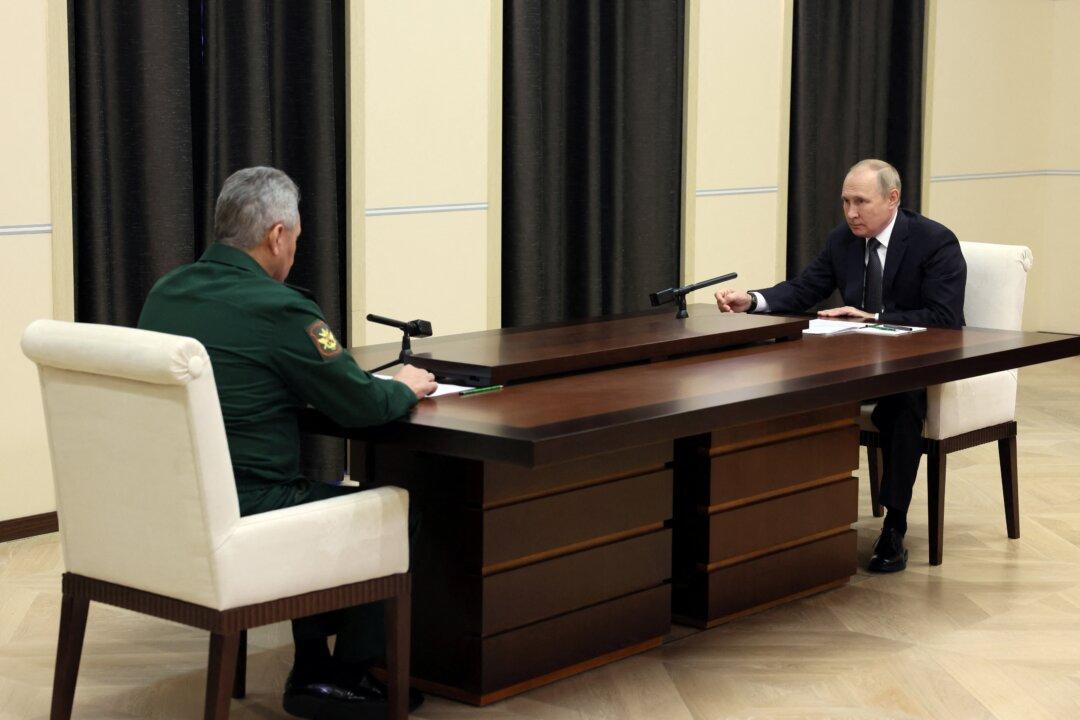FRONTLINES NORTH OF KHERSON, Ukraine—Russia said on Friday it had finished calling up reservists to fight in Ukraine, having drafted hundreds of thousands in a month and sending more than a quarter of them already to the battlefield after a mobilization campaign that was its first since World War II.
The United States, meanwhile, announced it would send another $275 million in military assistance to Ukraine, including arms, munitions, and equipment from Pentagon inventories, bringing U.S. military assistance to the country under the Biden administration to more than $18.5 billion





